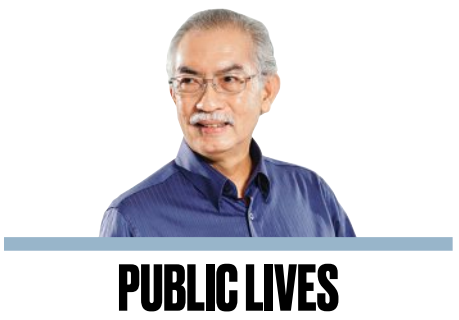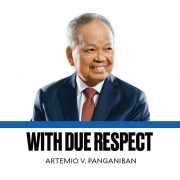Human rights in the last 75 years

It has been 75 years since the United Nations (UN) General Assembly adopted the Universal Declaration of Human Rights (UDHR), a foundational document that sets out the rights and freedoms inherent in and applicable to all human beings. Though not legally binding in itself, the UDHR with its 30 articles has served as a common standard of achievement for all peoples and nations, a guidepost to moral progress across diverse cultures and civilizations. It has also become the basis for international treaties and national constitutions.
Fifty-eight UN members at the time participated in the long and tedious process of producing, refining, and proposing an acceptable draft. Finally, on Dec. 10, 1948, 48 member countries, including the then newly independent Republic of the Philippines, voted to adopt the document. None voted against, eight abstained, and two failed to vote. The quintessential diplomat Carlos P. Romulo, who became the president of the fourth session of the UN General Assembly in 1949, played a valuable role in the complex negotiations and debates that marked the drafting process. The diminutive Filipino statesman was a consistent advocate not only of human rights but also of decolonization. The latter, a code word for national independence in the postwar years, was uppermost on the agenda of peoples who were yet to free themselves from the clutches of European colonialism. Yet, despite his being Asian, Romulo was perceived as America’s voice, articulating a perspective that was largely of the West. Because of that, he was not seen as a credible spokesperson for the postcolonial yearning for independence and economic development.The debates in the 1970s over so-called “Asian values,” which assigned primacy to the collective right to development and the preservation of social harmony, merely confirm the reservations that were first aired in the debates on the UDHR. Defending Singapore’s right to choose its own path to development and governance, Lee Kuan Yew became one of the most ardent exponents of the “Asian values” perspective. His critics, however, saw him as a defender of authoritarianism and repressive development.
This is an issue that, to this day, remains unresolved. One can understand why it makes almost no sense to declare a child’s right to education where the right to health can barely be met because of extreme poverty. It is thus not difficult to see the logic in Lee’s position: A country that does not have the economic means to adequately feed and educate its people can hardly afford the luxury of concerning itself with the civil and political rights of its individual citizens. The world must respect every nation’s right to choose its own path to development.
Human rights are indeed interconnected and indivisible. It is not easy to rank these rights and freedoms in their order of importance. As human rights proponents see it, the political right to freedom of expression is a prerequisite for the meaningful participation of people in the determination of policies affecting their lives.
I distinctly remember how, at the height of martial law, the civil libertarian and former University of the Philippines president Salvador P. Lopez formulated this issue in one forum in Diliman. He asked rhetorically: If people do not enjoy the right to freedom of expression, how can they know if their government and its leaders are doing the right thing to build the nation’s capacities? Then, almost like an afterthought, he added: But even animals in a zoo can be well-fed and made to adjust to life inside cages.
Such debates arise from the complex interplay between the presumed universality of human rights and the cultural diversity in the world at large. As though this complexity were not enough, human societies continue to evolve, and our understanding of human rights may not be sufficient to reflect the complexity of evolutionary achievement. New technologies in the digital realm, for instance, have thrown up new challenges related to internet privacy and data protection. And in the face of developments in biotechnology, genetics, and the medical sciences, new questions about human autonomy and dignity have also arisen. Clearly, there is a troubling lag between the new technologies and the capacity to formulate laws to safeguard human rights.
Today, we are seeing frantic efforts to narrow this gap. The most noteworthy campaigns include the following: digital rights (right to internet access, online privacy, freedom of expression, and protection from surveillance), environmental rights (right to a clean environment, accountability of states and corporations for the loss and damage arising from ecological degradation, etc.), sexual and gender minority rights (marriage equality, protection from discrimination, etc.), disability rights (accessibility rights and elimination of discrimination), and campaigns that promote awareness of the interconnectedness of multiple forms of exclusion, inequality, and disadvantage.Only a few of these new rights can be defended as inherent to being human. Yet they are not any less important than the original ones enshrined as natural and sacrosanct in the Universal Declaration of Human Rights.
—————-public.lives@gmail.com

















